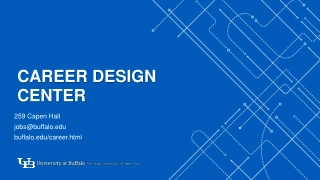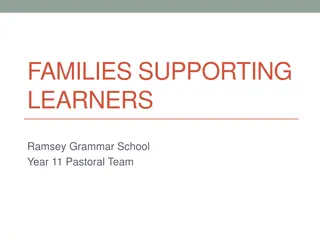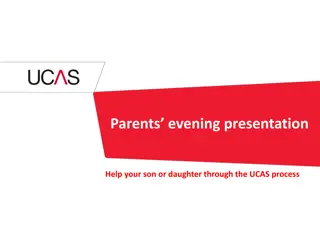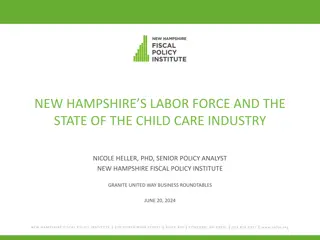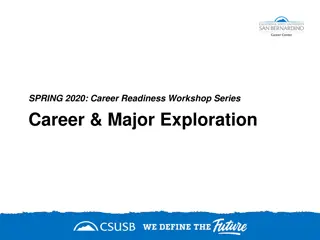
Supporting Your Child's Career Decisions
You play a crucial role in guiding your child's career decisions. Learn about Higher Technical Qualifications (HTQs), career pathways, and creating a career plan to support your child's journey towards their goals.
Download Presentation

Please find below an Image/Link to download the presentation.
The content on the website is provided AS IS for your information and personal use only. It may not be sold, licensed, or shared on other websites without obtaining consent from the author. If you encounter any issues during the download, it is possible that the publisher has removed the file from their server.
You are allowed to download the files provided on this website for personal or commercial use, subject to the condition that they are used lawfully. All files are the property of their respective owners.
The content on the website is provided AS IS for your information and personal use only. It may not be sold, licensed, or shared on other websites without obtaining consent from the author.
E N D
Presentation Transcript
Post-18 pathways and Higher Technical Qualifications (HTQs) ADD TEACHER NAME HERE 1
Aims of the session To reflect on how you can support your child with their career-related decisions To learn about Higher Technical Qualifications (HTQ) and how they differ from other post-18 pathways To consider whether Higher Technical Qualifications (HTQs) may be a good option for your child To understand the timelines and process for applying to HTQs 2
Supporting your child to make a career plan As a parent, you play an essential role in supporting your child s career-related decisions A career plan can help steer your child s focus towards their next steps. It will help your child identify their goals, and how they can get there. A plan is a work in progress . It's important your child knows that their plan can change as they do more thinking. Help them to think about their next steps, but also about their destination. Step 1: Understanding skillset Help your child understand what skills, interests or experiences they have gained in and out of school Step 2: Explore career routes Explore the different careers available to them and identify what they will need to pursue each route. Step 3: Setting goals to get there Now they have an idea of how their skills and interests match up to different careers, help them set a plan to get there! Research what qualifications could be required and speak to careers advisors at their school, or online on NCS. Visit labour market information (LMI) to see up-to-date information and statistics about working in different industries. Use the National Careers Service (NCS) Skills Assessment tool to identify their skills 3
The main post-18 pathways Undergraduate degrees Higher Technical Qualifications (HTQ) Apprenticeships Work 4
Undergraduate degrees There are a variety of undergraduate degrees available, covering a diverse range of subjects and taught in different ways. Typically these: Are at least 3 years in length. Are taught largely in classrooms and lecture halls (as well as laboratories and workshops). Although some offer opportunities to take a year in industry. Require you to pay tuition fees and to cover your living expenses. These costs can be covered by a tuition loan (up to 9,250 a year) and a maintenance loan (up to 13,022). Can lead to an average graduate salary of 26,500 per year For more information see: https://www.ucas.com/undergraduate 5
Apprenticeships Apprenticeships combine practical training in a job with study. Typically these: Take between 1 to 5 years to complete, depending on their level Involve employment in a job of your choice, while studying for a formal qualification (usually for 1 day a week at a FE college, university or training centre) Allow you to get paid a salary, at least the minimum apprenticeship wage. Can lead to earnings between 19,000- 24,000 a year, one-year post training. For more information see: https://www.ucas.com/apprenticeships 6
Focus on HTQs In this session we are going to focus on: Higher Technical Qualifications (HTQs) Has anyone come across this pathway before? 7
In summary: HTQs HTQs have been available since September 2022 and are alternatives to apprenticeships or degrees that cover a wide range of different occupations. Typically they are: 1-2 years in length if studied full time, shorter than undergraduate degrees. Taught in classrooms, workshops and labs, and may include work experience. Eligible for student finance, for tuition fee and maintenance loans. A flexible choice: Full or part time study available, taught at universities and colleges Once complete, your child has the option to progress to further study or employment Approved by the Institute of Apprenticeships and Technical Education (IfATE) Starting salaries of 24,410* a year after completing a HTQ. Find more information through UCAS or the National Careers Service. 10 *L4/5 earnings in an FE setting
HTQ pathways and career opportunities Further HTQs from 2025 Existing HTQs HTQs can lead to the following jobs: Network Engineer agriculture, environmental and animal care catering and hospitality creative and design care services protective service sales, marketing and procurement construction, design and build health and science digital Software Developer Data Analyst Further HTQs from 2024 (enrolling now) business and administration education and early years engineering and manufacturing legal, finance and accounting Construction Site Supervisor Quantity Surveying Technician Nursing Associate Assistant Practitioner (Health) Which of these pathways might appeal to your child? Sports Coach and many more!
Comparing post-18 pathways Undergraduate degrees Apprenticeships Employment Higher Technical Qualifications (HTQs) Study at university, college or conservatoire Work for an employer, with part- time study Work for an employer Study at FE colleges, universities, IOTs or independent training providers Institution At least 3 years Ranges from 1-5 years N/A 1-2 years (if full-time) Length of study Classroom-based, some with option to do placement year Work-based, while studying for a qualification Work-based Classroom-based, some with workshops, labs or work experience Study/training focused Tuition fees ( 9,250 a year) and living expenses. Eligible for student finance No fees No fees Tuition fees ( 7,000- 9,250 a year) and living expenses. Eligible for student finance Cost minimum apprenticeship wage Average of 26,500 per year after graduation At least the minimum Average of 19,000 per year Average of 24,410* per year after completing your course Salary minimum apprenticeship wage apprenticeship wage during apprenticeship, salaries vary afterwards *As HTQs are a new quality stamp for qualifications, we've provided information on what the salary of L4/5 qualifications is - these are similar types of courses to HTQs. But with HTQs you also have confidence that they're based on the skills and knowledge employers want.
Which HTQs are available nearby? ADD 2-3 LOCAL PROVIDERS AND A LIST OF THE HTQS THEY OFFER. DRAW FROM THE LIST HERE: https://www.gov.uk/government/publications/list-of-higher- technical-qualifications 13
Next steps If you think your child might be interested in HTQs: Scan the QR codes on the slide to find out more UCAS: If you want to further support your child in making career decisions: Encourage your child to talk about their choices with you, their teachers and careers advisors Support your child to reach out to education or training providers who offer the course they are interested in, to ask what they are looking for before you apply Engage in careers conversations with your child to help them feel more supported, informed and confident in their decisions Skills for Careers: DfE: 14
Effective careers conversations When planning to have a careers conversation: Seek out information about the different post-18 options for your child Consider what skills your child already has and how this fits with the options available Be open to all ideas, try to listen more than talk Know that the conversation is a starting point to help your child feel more informed about their options Have a list of questions and prompts in mind Consider when would be a good time to have this conversation and try initiate it at that time Embed careers discussion in everyday conversation, not just at key decision-making points
How to get the conversation going about HTQs Exploring their passions: What subject are you most enjoying? Do you know which HTQs are related to your favourite subject? Are there any careers you feel passionate about? Which HTQs are linked to this career? What skills do you have that you think would be useful in a future career? Which HTQ pathways could help you build and develop the skills you need? What interests you about the jobs/careers you are considering? Next steps to finding out more: How do you feel about the jobs you re considering? What qualifications do you need to do your dream job? Have you thought about HTQs? Do we know anyone who has a job relating to a career you re interested in? What careers events are taking place at your school or college? Are any about HTQs? How can I best support you in researching different career routes? Use the conversation prompts in the leaflet to get you started!


